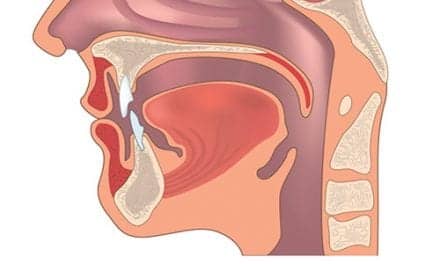Renowned medical experts at the American Thoracic Society (ATS) International Conference unveiled new evidence that demonstrates treating obstructive sleep apnea (OSA) with positive airway pressure (PAP) therapy lowers all-cause mortality for patients.
In addition, a late-breaking abstract showed treating central sleep apnea caused a “significant and clinically relevant improvement” in patients’ symptoms and quality of life. The studies were among 24 supported by ResMed.
Treating OSA with PAP Lowered All-cause Mortality in France, Germany
Two headline studies presented at ATS showed an association between PAP treatment for OSA and lower all-cause mortality. One is an analysis of over 22,000 anonymized German patients diagnosed with OSA—roughly half using PAP, the other not. The study, led and presented by German sleep researcher Holger Woehrle, concluded PAP treatment for OSA is associated with a 13% lower mortality in the first four years of treatment.
The other is an analysis of over 100,000 deidentified French patients who previously stopped but restarted PAP to treat OSA—roughly two-thirds were still using PAP one year later, the other one-third stopped a second time. The study, led and presented by French sleep researcher Jean-Louis Pépin and part of ResMed’s broader landmark ALASKA study, found “the risk of all-cause death was 38% lower in individuals who continued using CPAP after therapy resumption.”
These studies build on a 2022 ResMed ALASKA study published in CHEST that found people with OSA who continued PAP over a three-year period were 39% more likely to survive than those who didn’t.
Treating CSA with ASV Improved Quality of Life, Symptoms Over One Year
A third major finding came out of READ-ASV, the largest prospective registry investigating the clinical use and effects of adaptive-servo ventilation (ASV) in a real-world cohort with central sleep apnea.
Led and presented by German sleep researcher Michael Arzt, this prospective, multicenter, and multinational study of 847 patients concluded that first-time ASV users with central sleep apnea “experienced a significant and clinically relevant improvement in disease-specific quality of life, daytime sleepiness, and quality of sleep.”*
“Combined, these studies by globally renowned researchers emphasize not only the effectiveness of PAP and specifically ASV therapy for patients who need them, but how better sleep and breathing is vitally connected to our overall health,” says Carlos M. Nunez, MD, ResMed chief medical officer, in a release.










